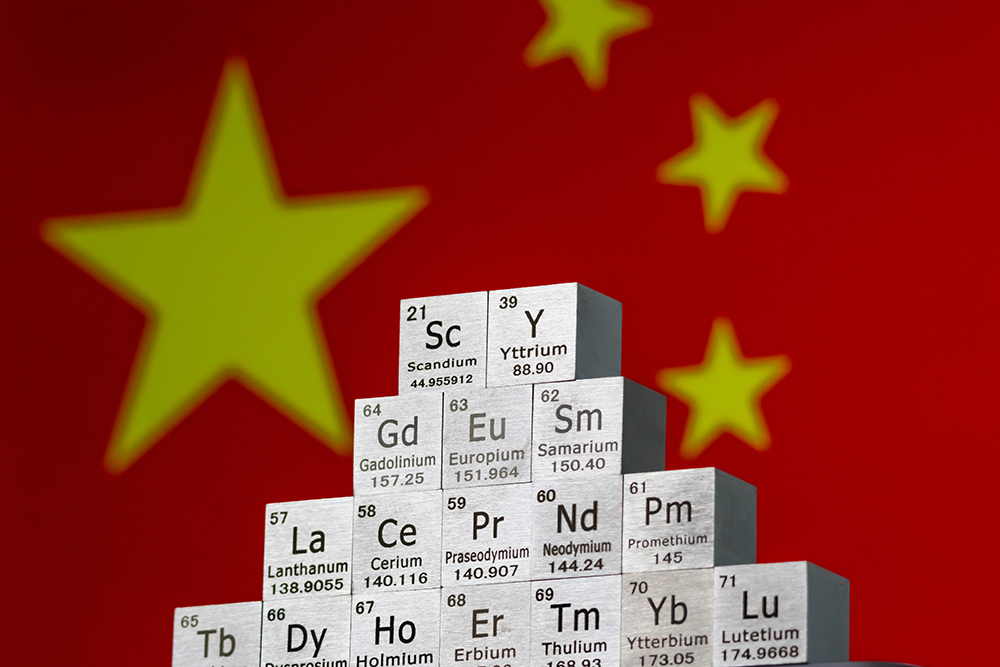Anything short of a full boycott of the 2022 Beijing Olympics is an abdication of America’s responsibilities and a rejection of its values. Dispatching athletes to China in February would also violate the Olympic spirit.
In a November 2 social media post, three-time Olympian Peng Shuai accused former Chinese vice premier Zhang Gaoli of sexual assault. That post was deleted within minutes and Peng promptly disappeared.
The Chinese government has clearly seized control of her and her whereabouts, while Chinese state media has taken control of her story, releasing an email, purportedly from Peng, rescinding her allegations. It’s also published photos, purportedly from her friends’ social media, as claimed evidence that she is happy and healthy. It’s even released pictures of her at a government-overseen youth tennis tournament. The same day, the editor of a state-run newspaper announced that Peng would “show up in public” soon.
Peng’s case is jarring. It is inexcusable. It is also not a surprise. Beijing has detained its leading tech executives for challenging the absolute control of the Chinese Communist Party (CCP). It has arrested dozens of individuals in Hong Kong, accusing them of “terrorism and sedition” for holding vigils, attending protests, running newspapers, and otherwise trying to maintain the integrity of an embattled democracy as the rest of the world turns its back. And it is in the process of deliberately exterminating a religious minority group in Northern China.
Yet in February, the United States and its allies and partners across the globe are scheduled to participate in the Winter Olympics in Beijing. They are scheduled to do so despite the fact that participation in Beijing is an implicit endorsement of China’s authoritarian, abusive, genocidal regime; that the CCP has a track record of using the Olympics as an excuse to tighten repression at home; and that the Games provide a platform through which the CCP can acquire international resources to fuel its domestic, and international, agendas.
Attending the Games is an obvious moral faux pas: it will suggest that the United States will play ball, literally and figuratively, as the CCP brazenly abuses human rights at home.
But this isn’t just a question of values and statements. A boycott of the 2022 Games is also a strategic imperative. Beijing treats the Olympics as a means to enhance global prestige, acquire and deploy new technological resources that can strengthen its tech-enabled authoritarian system, and develop new channels for international propaganda.
The lessons of the 2008 Olympic Games in Beijing underline as much. The CCP launched a series of major international technology partnerships around the 2008 Olympics, including with major private sector players, like Microsoft, and multinational governments, like the EU. Chinese academics also described the 2008 Games as a key turning point in Beijing’s ability to “use foreign media for external communication” of propaganda. And the CCP dramatically expanded its surveillance network in Beijing and across China in concert with 2008 Games, granting it unprecedented information on, and control over, its citizens.
Moreover, today, Beijing sees the 2022 Olympics as an inflection point in its efforts not just to catch up to, but in fact to overtake, the United States as the global leader.
Participation in the Beijing Games does not only make the US complicit. It means aiding and abetting CCP atrocities.
The US and its allies and partners should boycott the 2022 Olympics. And they should make this a real boycott, not a wishy-washy diplomatic one. Beijing would treat, and message, a diplomatic boycott just as they did protests along the torch relay path in 2008 — as a half-hearted, failed attempt to challenge China’s inevitable rise; proof that the US has no alternative to, and is no match for, the Chinese Communist Party.
In 1980, 65 countries, led by the United States, boycotted the summer Olympics in Moscow. They did so in protest of the Soviet invasion of Afghanistan. That model — under which the United States assumed values-based leadership to protest a country’s flagrant disregard for international norms — is the one to replicate today.
It would be painful for the athletes. Hell, it would be painful for the viewers, too. But here’s something that would be a whole lot more painful: a world in which China is able to expand its influence and its repression unchecked — and in which the United States loses its ability to take a stand.

























